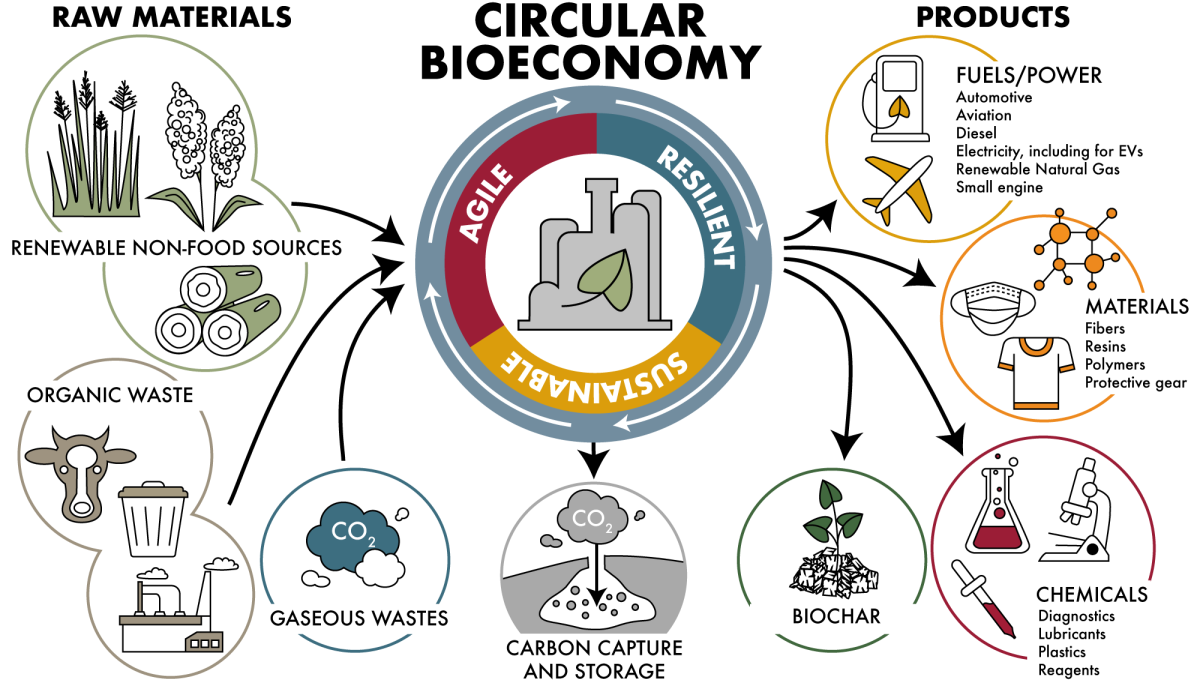Bio-Circular and Sustainable Agricultural-Based Economic Development Initiative
Tranquillity Resource Conservation District has been in the forefront in initiating sustainble agricultural-based economic development activities that can contribute to what is known as the Bio-Circular Economy. This is an important foundation that supports the goals and objectives of the Strategic Growth Council's Transformative Climate Communities Program as funded for TRCD's Agricultural Economy and Workforce of the Future Planning Program and the complementary Sustainble Lands Initiative that is under evaluation. There are numerous illustrations, definitions and models that can be applied to an agricultural-based economy. There are many resources in which to further explore the emerging area of the agricultural bio-circular economy.
- The ideal goal is to reduce as much as possible what has been classified as "waste" and turn it into something that has value. An example that represents that principle is the " Methane Capture and Utilization for Energy" operations at the Bar 20 Ranch that is in Tranquillity's District. In addition to re-newable energy production, the ultimate benefit is the absence of methane as a sigificant source of Greenhouse Gas emissions and the reduction of other waste such as manure.
- Tranquillity has been ambitiously working to develop and implement additional Zero Waste / Zero Emissions leading-edge technologies and practices within the Ag sector in the district on the west side of Fresno County and the San Joaquin Valley region as a whole. This includes a bio-circular approach to Whole Orchard Recycling which can go beyond just chipping and composting. The chips can become a feedstock for producing renewable diesel, biochar, green hydrogen and for electricity. The links provided are just the starting point of the tremendous potential there is for a sustainable and productive Ag economy of the future.
- The California Department of Food and Agriculture has what is known as The Office of Agricultural Resilience and Sustainability or OARS. The program was formerly known as the Office of Environmental Farming and Innovation. There are a wide array of opportunities for farmers and ranchers in which to embark upon such as inproving the fertility and health of their soils, using native pollenators to enhance their yields, and various ways in which to improve water quality and quantity through technologies and practices.

